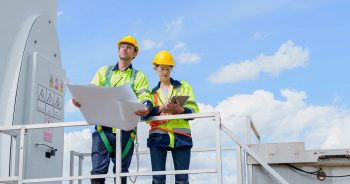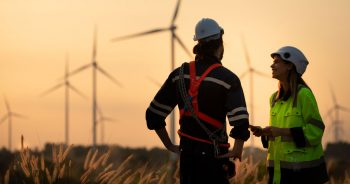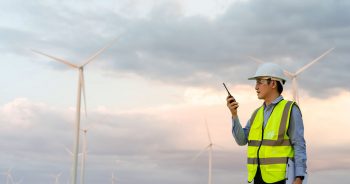He/She is primarily involved during the installation and commissioning phases of control and monitoring systems, ensuring their proper operation, compliance with technical requirements, and integration within the nuclear safety environment.
—
Looking for new challenges in nuclear projects?
Join Altea Energy’s community of nuclear consultants! ➡️
Together let’s transform the energies of tomorrow!
Main missions
The Instrumentation Engineer supervises the installation of sensors, transmitters, actuators, measurement devices, and associated safety systems. He/She ensures proper electrical and pneumatic connections, parameter configuration, and integration with supervision and control systems.
During the commissioning phase, he/she participates in functional tests, equipment calibration, loop checks, and signal validation in coordination with automation, safety, and supervision systems. He/She works in close collaboration with construction, commissioning, I&C, electrical, and safety teams.
Job activities
- Installation Preparation: Review execution drawings, technical specifications, instrumentation datasheets, and loop lists. Anticipate technical and material requirements.
- On-Site Installation Supervision: Oversee the installation and connection of sensors, transmitters, control valves, detectors, etc., in coordination with construction teams and subcontractors.
- Configuration and Setup: Program and configure instrumentation devices according to project requirements (units, measurement ranges, alarms), and interface with control systems.
- Testing and Commissioning: Participate in loop checks, functional tests, instrument calibrations, and signal validation within automation and safety systems.
- Quality and Compliance Monitoring: Ensure traceability of equipment (serial numbers, conformity certificates, calibration records) and compliance with applicable standards and nuclear safety procedures.
- Documentation Management: Prepare test sheets, test reports, non-conformity reports, and modification requests, while keeping loop diagrams, hook-ups, and technical documents up to date.
- Technical Interface: Collaborate with commissioning, automation, safety, electrical teams, and suppliers to ensure proper integration of all instrumentation systems.
- Technical Support: Support operations teams during system handover and provide assistance during the transfer to permanent operations.
Required skills
An Instrumentation Engineer in the installation and commissioning phase of a nuclear project should have the following skills:
- Strong knowledge of measurement devices (pressure, flow, temperature, level…) and instrumentation technologies.
- Proficiency in applicable standards and references: IEC, ISO, IEEE, and nuclear safety requirements (BNI/INB), EDF or client-specific standards.
- Understanding of control systems, automation loops, analog and digital I/Os.
- Experience in on-site testing (loop checks, FAT, SAT) and commissioning of critical systems.
- Excellent documentation and traceability skills, with a quality-focused mindset.
- Ability to work in a multi-disciplinary and highly regulated environment.
- Good command of technical English (documentation, communication with international suppliers).
- Nuclear certifications required depending on the site (e.g., SCN, RP, CSQ in France).
—
Looking for new challenges in nuclear projects?
Join Altea Energy’s community of nuclear consultants! ➡️
Together let’s transform the energies of tomorrow!
Other Installation & Commissioning Jobs
-
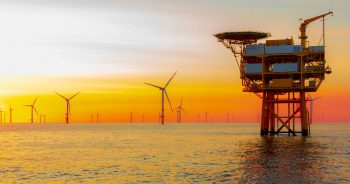
Offshore Substation Supervisor – Wind Energy Jobs
The Offshore Substation Supervisor in the field of wind energy is responsible for supervising and coordinating the installation, commissioning, and operation of offshore substations, ensuring the efficient transmission of energy generated by offshore wind turbines.
-
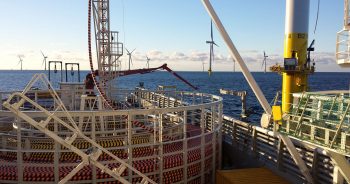
Offshore Cable Jointing & Termination Inspector – Wind Energy Jobs
The Offshore Cable Jointing & Termination Inspector in the wind energy sector is responsible for overseeing and ensuring the quality of cable jointing and termination operations between wind turbines and offshore substations, thereby ensuring efficient energy transmission.
-
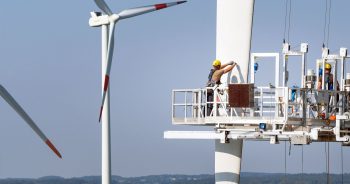
Wind Turbine Maintenance and Repair Technician – Wind Energy Jobs
The Wind Turbine Maintenance and Repair Technician, specializing in Operations & Maintenance, is responsible for carrying out preventive and corrective maintenance operations on wind turbines to ensure their proper functioning and optimal performance.
-

Wave Radar Maintenance Technician & Commissioner – Wind Energy Jobs
The Wave Radar Maintenance & Commissioner, in the field of wind energy and specifically in the Operations & Maintenance sector, is responsible for ensuring the proper functioning and maintenance of the wave radar, a crucial instrument for monitoring oceanic conditions and the safety of offshore wind operations.
-
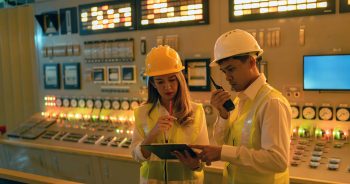
Electrical Engineer – Nuclear Energy Jobs
An Electrical Engineer in the nuclear energy sector is responsible for designing, analyzing, and maintaining electrical systems and equipment used in nuclear power plants. This role ensures the reliability, efficiency, and safety of electrical installations in compliance with regulatory standards, contributing to the overall performance of nuclear operations.
-
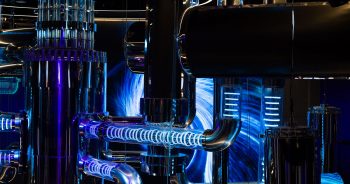
Piping Engineer – Nuclear Energy Jobs
A Piping Engineer in the field of nuclear energy is responsible for the design, analysis, and maintenance of piping systems used in nuclear power plants. This role ensures the reliability, efficiency, and safety of piping installations in compliance with regulatory standards, thereby contributing to the overall performance of nuclear operations.
-
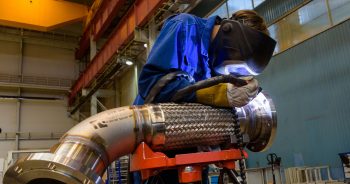
Welding Engineer – Nuclear Energy Jobs
A Welding Engineer in the nuclear energy sector is responsible for designing, analyzing, and supervising welding operations used in nuclear power plants. This role ensures the reliability, efficiency, and safety of welds according to regulatory standards, thereby contributing to the overall performance of nuclear operations.
-
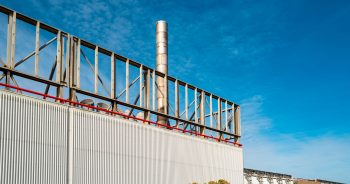
HVAC Engineer – Nuclear Energy Jobs
An HVAC Engineer in the nuclear energy sector is responsible for designing, analyzing, and overseeing the heating, ventilation, and air conditioning (HVAC) systems used in nuclear power plants. This role ensures the reliability, efficiency, and safety of HVAC systems in accordance with regulatory standards, contributing to the overall performance of nuclear operations.
-
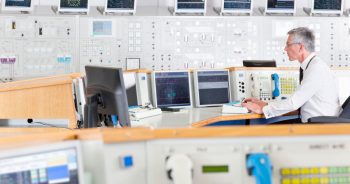
Instrumentation & Control Specialist – Nuclear Energy Jobs
The Instrumentation & Control Specialist in the nuclear energy field is responsible for designing, installing, maintaining, and overseeing control and instrumentation systems used in nuclear power plants. This role is crucial for ensuring the accuracy, reliability, and safety of nuclear operations by making sure that all instruments and control systems function properly.
-
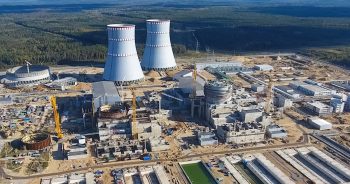
Electrical Engineer – Construction – Nuclear Energy Jobs
The Electrical Engineer during the construction phase of a nuclear energy project is responsible for supervising, coordinating, and validating electrical installation work on site. He/She ensures that all installations comply with technical specifications, nuclear standards, and safety requirements throughout the construction process. This role is critical to the smooth progress of the site and the successful commissioning of electrical systems.
-
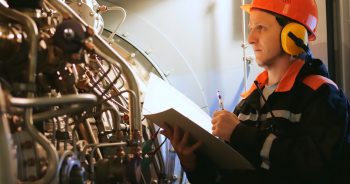
Mechanical Engineer – Construction – Nuclear Energy Jobs
The Mechanical Engineer during the construction phase in the nuclear energy sector is responsible for supervising the installation, inspection, and compliance of mechanical equipment on site (pumps, heat exchangers, valves, metallic structures, etc.). He/She ensures that all mechanical works are carried out according to technical requirements, nuclear safety standards, and the project schedule.
-
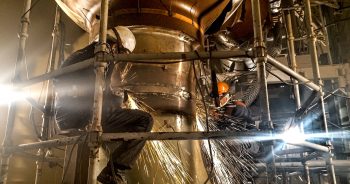
Welding Engineer – Construction – Nuclear Energy Jobs
The Welding Engineer during the construction phase in the nuclear energy sector is responsible for the technical supervision, quality monitoring, and regulatory compliance of welding operations on site. He/She is involved in the preparation, execution, and inspection of welds on mechanical components and structures (piping, pressure equipment, steel structures, etc.), in accordance with nuclear codes and safety requirements.
-
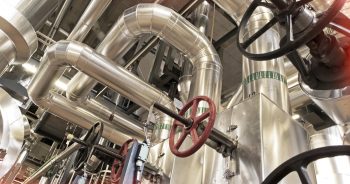
Valve Engineer – Construction – Nuclear Energy Jobs
The Valve Engineer during the construction phase in the nuclear energy sector is responsible for the technical supervision, quality control, and regulatory compliance of valve systems (gate valves, safety valves, check valves, motorized or manual valves) on site.
-
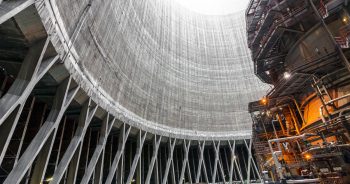
Piping Supervisor – Construction – Nuclear Energy Jobs
The Piping Supervisor in the nuclear energy sector is responsible for coordinating, monitoring, and inspecting piping installation activities on construction sites. He/She ensures that the work is carried out in accordance with technical specifications, nuclear safety standards, and project schedules, while managing assembly teams or specialized subcontractors.
-
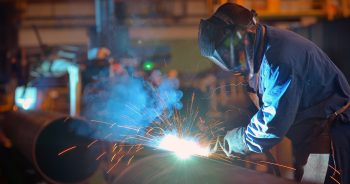
Welding Supervisor – Construction – Nuclear Energy Jobs
The Welding Supervisor in the nuclear energy sector is responsible for the technical oversight, quality control, and regulatory compliance of welding operations on site. He/She supervises the preparation, execution, and inspection of welds in strict accordance with nuclear safety standards, applicable codes (RCC-M, ESPN, ASME IX, etc.), and the project schedule.
-

Commissioning Engineer – Installation & Commissioning – Nuclear Energy Jobs
The Commissioning Engineer in the nuclear energy sector is responsible for preparing, executing, and analyzing the tests required for the progressive commissioning of systems and equipment within a nuclear facility. He/She acts as an interface between engineering, construction, commissioning teams, and future operators to validate system compliance with technical, functional, and safety requirements.
-
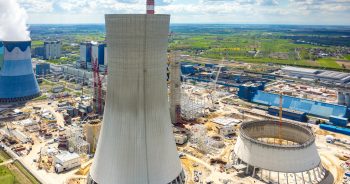
Construction Coordinator – Installation & Commissioning – Nuclear Energy Jobs
The Construction Coordinator in the nuclear energy sector plays a key role in the daily supervision of on-site operations during the installation and commissioning phases. He/She ensures coordination among the various stakeholders on site (contractors, subcontractors, engineering, safety) to guarantee smooth progress of activities in compliance with quality requirements, nuclear safety, site security, and project deadlines.
-

Commissioning Supervisor – Installation & Commissioning – Nuclear Energy Jobs
The Commissioning Supervisor in the nuclear energy sector plays a key role during the final installation phase, ensuring all systems and equipment are properly tested and ready for safe operation. He/She is responsible for planning, coordinating, and supervising all commissioning activities, while ensuring compliance with nuclear safety, quality, and performance requirements.
-
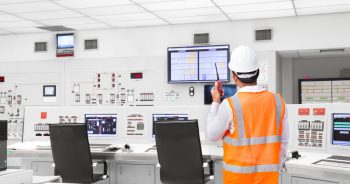
Instrumentation, Control Systems, Testing & Commissioning Specialist – Nuclear Energy Jobs
The Instrumentation, Control Systems, Testing & Commissioning Specialist plays a critical role during the installation and commissioning phase of a nuclear power plant. He/She is responsible for ensuring the conformity, performance, and safety of control and instrumentation systems, from onsite integration to functional validation of the equipment.
-
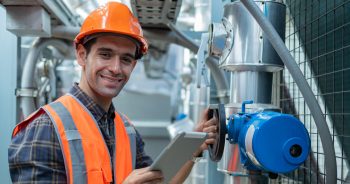
Valve Supervision Engineer – Nuclear Energy Jobs
The Valve Supervision Engineer during the Installation and Commissioning phase in the nuclear sector is responsible for coordinating and supervising the implementation, adjustment, and testing of valve equipment (motorized valves, safety relief valves, check valves, etc.).
-
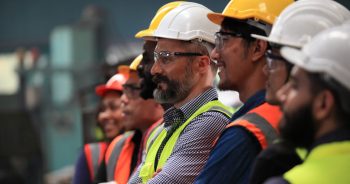
Mechanical Supervisor – Nuclear Energy Jobs
The Mechanical Supervisor during the Installation and Commissioning phase in the nuclear sector is responsible for coordinating, monitoring, and validating the final installation, mechanical testing, and compliance of equipment prior to operational handover.



